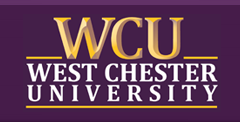Document Type
Poster
Publication Date
4-29-2021
Abstract
The Presenter is a Graduate Assistant for Dr. Vickie Ann McCoy, and together they are exploring the literature pertaining to intersectional identity development in college students with disabilities, to be published later this year in a higher education textbook. This presentation will highlight the importance of viewing disability as an aspect of identity development. Paralleling discussions of race, ethnicity, class, gender, and sexual orientation, these researchers believe it is essential to include disability when examining individual identity through an intersectional lens. Disability is unique in that it can occur at any point in a person’s life and the term encompasses both visible and invisible aspects. Disability identity development theory is young and though research is still emerging, there is much to learn within the current literature. The focus of the textbook chapter is the utilization of different disability identity theories in higher education settings. We’ll be taking a closer look at the Model of Social & Psychosocial Disability Identity Development (Forber-Pratt & Zape); why the four developmental statuses are fundamental to the development of disability identity; and how this theory has given foundation to further research pertaining to college student identity development. We believe that higher education professionals can play a significant role in creating a more inclusive and supportive campus for their students with disabilities. In addition to mandatory accommodation provision, there are additional aspirational strategies that allow higher education professionals to facilitate a healthy identity which allows students with disabilities to feel safe, make connections, and grow.
Recommended Citation
Andrulewich, L. (2021). Fostering Health Disability Identity Development in College Students. Retrieved from https://digitalcommons.wcupa.edu/counsed_stuwork/2
